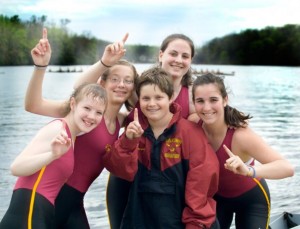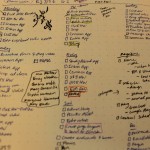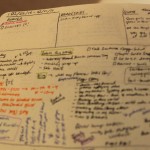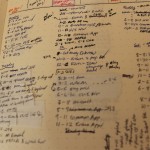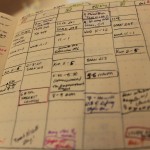Over breakfast, I listen to my exercise science friend talking about the people who have survived the most extreme core temperature drops. A two-year-old who was found outside with a core temperature of 57 degrees is apparently the record. My friend is going over an article for class that she thinks they might be quizzed on, and tells me the stages that a human goes through: when they stop shivering, when they start hallucinating, when “paradoxical undressing” sets in and the victim tears off their clothing to offset the sudden feeling of extreme heat that comes over them.
I had a class cancelled today, and this has made for a relaxing morning, where I can cook myself a hot breakfast and enjoy some tea and science. But hey, I’m no social science major, so I can’t get too used to it. Being a math majoring Spanish minoring part-time working student means no free days during my week. It has its perks, though. When you practically live in Thompson Hall you get to know the ins and outs, chilling with the other math lounge inhabiters, running across a gaggle of courtyard b-ballers, recognizing the faces of each and every coffee-soaked, laptop-tanned Opp devotee. Having class four times a week with a group of less than ten students certainly leads to some class community, too. Last semester in advanced calculus, we established a tradition of bringing in treats to share every Friday. The second semester of the class is even smaller, which means fewer people in the rotation, but also more treats to go around. We’ve been blessed with a non-allergic, non-picky group of people, so dairy’s in, wheat’s in, chocolate chip cookies are a go, peanut butter anything is acceptable, banana bread has made a few well-received appearances, and the crowning reward to the semester was getting to eat zoo animal shaped waffles during the final exam. Ah yes, from pie on March 14th to cupcakes in linear algebra (for when the whole class could take a test without making some previously established common mistake), being a math major is delicious. So far I’ve made only sweet treats for my classmates, but maybe it’s time to branch out. I’m thinking quiche, hum bao, hand-crepes, deviled eggs, shrimp canapés… and maybe it’s time to stop thinking and start making lunch to celebrate this rare chunk of free time in my life.

